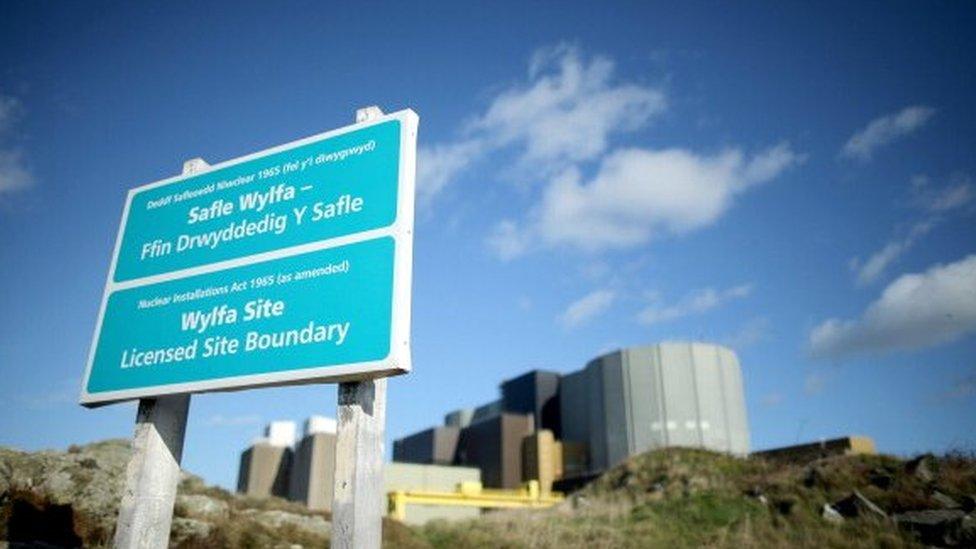Energy: Boris Johnson considers Wylfa for new nuclear power
- Published
Boris Johnson says nuclear power should be part of the power generation mix in the UK
Proposals for a new nuclear power plant at Wylfa are being looked at by the UK government, the prime minister has said.
Boris Johnson said previous ministers had failed to take "tough decisions" on the technology.
It comes as officials hold exploratory talks with groups wanting to build a nuclear plant at the Anglesey site.
A previous bid for a new plant was scrapped earlier this year.
Japanese firm Hitachi walked away from the Horizon project after it failed to agree with the UK government on funding.
Two groups have been speaking to officials at the UK government's Department for Business, Energy and Industrial Strategy.
A consortium involving US engineering firm Bechtel has proposed building a Westinghouse AP1000 reactor.
Talks have also taken place with UK-based Shearwater Energy, he said, which has hybrid plans for small nuclear reactors and a wind farm.
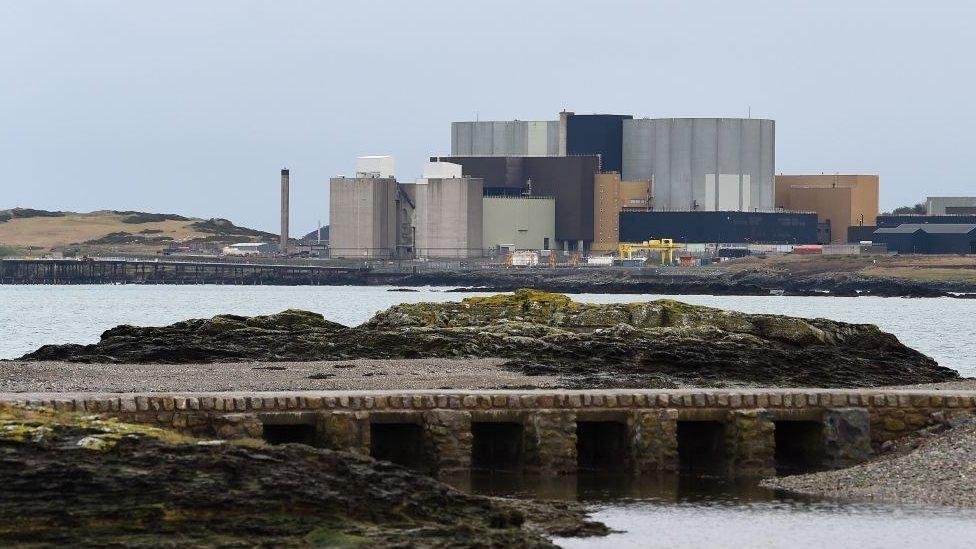
Wylfa Newydd nuclear plant was switched off in 2015 and is being decommissioned
Speaking to BBC Wales, Mr Johnson said: "To be frank, governments in this country have refused to take the tough decisions on nuclear for too long.
"We do need to go forward with more nuclear power. I do think it should be part of our baseload.
"So that's why yes, of course, we're looking at Wylfa as well as lots of other projects."
He said the cost of energy can be held down "if we make the big long-term investments that we need to do now in clean power generation".
A representative of Bechtel has said Anglesey is regarded as the best site in the UK to build a large-scale nuclear power station.
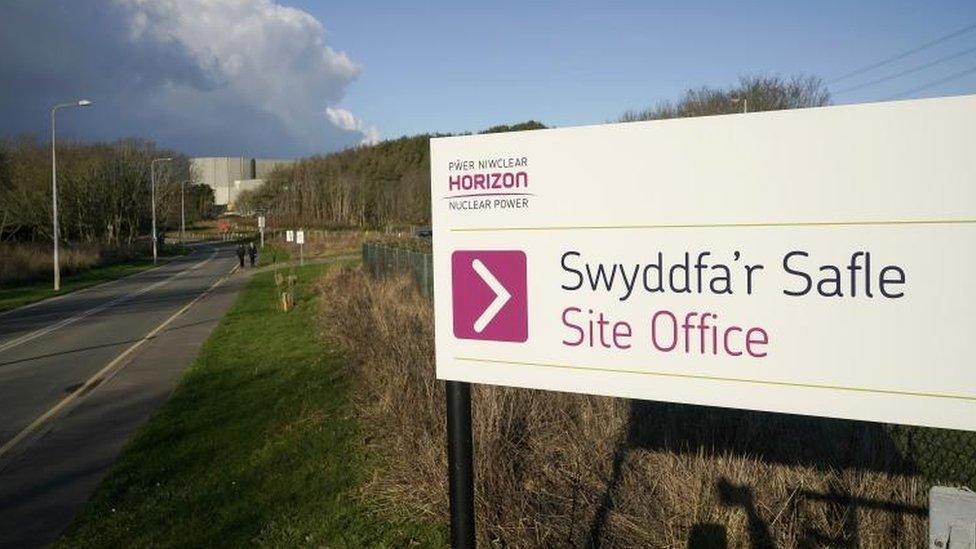
Previous plans to build a new nuclear power station on Anglesey were ditched in January
Wylfa is currently the site of a decommissioned power station, the last part of which was switched off in 2015.
Plans for a new £13bn nuclear power plant failed after backers Hitachi failed to come to an agreement with the UK government over how it would be subsidised.
Reports suggested the company was offered a "strike price" - a price on energy that ministers would guarantee to the builders of the project - of around £75 per megawatt hour.
The nuclear plant was intended to have a generating capacity of 2,900 megawatts (MW) and have a 60-year operational life.
'Not right to subsidise low wages'
Mr Johnson spoke ahead of the Conservative party conference, which begins in Manchester on Sunday.
Defending the decision to scrap the £20 universal credit uplift, he told BBC Wales he did not believe it would be right to subsidise low wages.
He said a £500m hardship fund was being set up - with £25m going to the Welsh government, which can spend the cash how it wants.
There are 275,000 universal credit claimants in Wales.
Mr Johnson continued: "What I don't think would be right would be to subsidise low wages when companies are paying their workers more.
"That is the right way forward for the UK economy."
See the full interview on Politics Wales, on BBC Two Wales, at 10:00 BST on Sunday, and afterwards on BBC iPlayer.
- Published23 September 2021
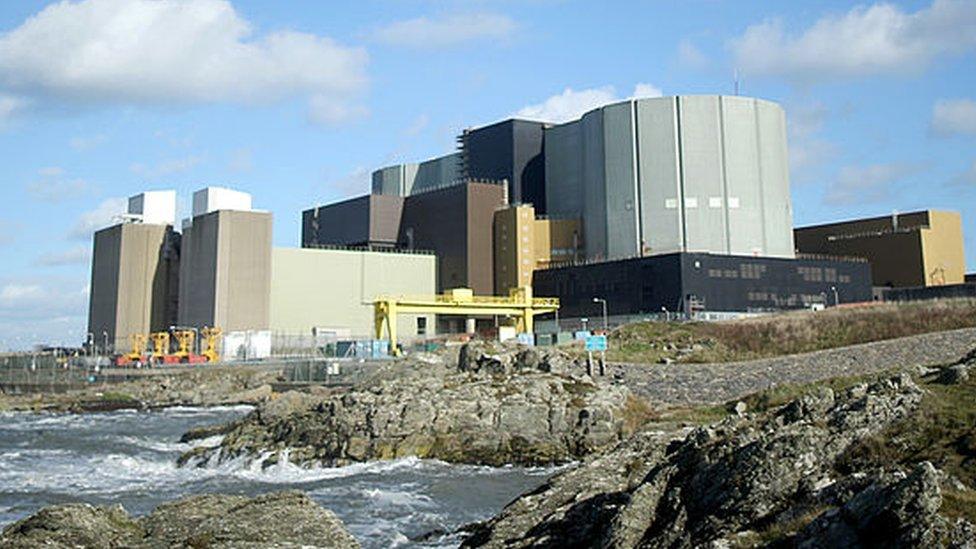
- Published16 September 2020
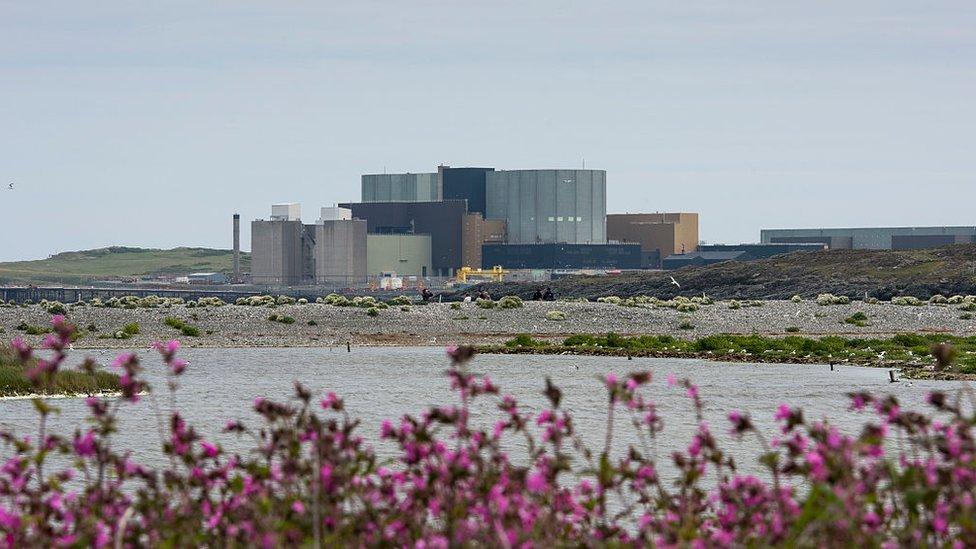
- Published27 January 2021
